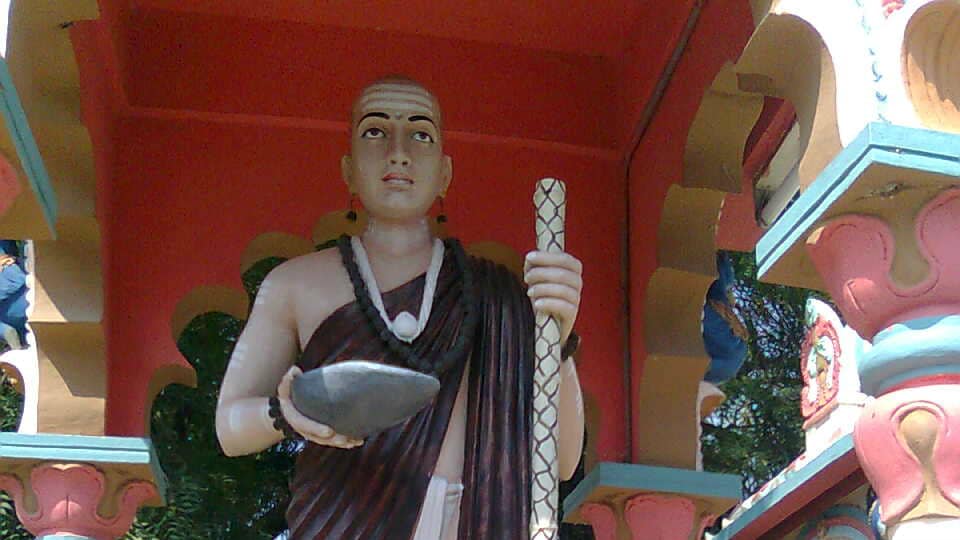
ಕೊಟ್ಟು ಹುಟ್ಟಲಿಲ್ಲ, ಮುಟ್ಟಿ ಪೂಜಿಸಲಿಲ್ಲ,
ಸಿಟ್ಟಿನಲ್ಲಿ ಶಿವನ ಬೈದರೆ
ಶಿವ ತಾನು ರೊಟ್ಟಿ, ಕೊಡುವನೆ
Koṭṭu huṭṭalilla, muṭṭi pūjisalilla,
Siṭṭinalli śivana baidare
Śiva tānu roṭṭi, koḍuvane Sarvagna
Neither did you care to give, nor did you pray with a pure heart…and now you scolding God for being indifferent to you, doesn’t make him serve you pancakes…so says Sarvajña.
This tripadi works on different levels. One can interpret it literally – a person who does not share, nor surrender to the divine with a pure heart, cannot expect God to be benevolent to him. We all pray to the Almighty mostly in times of need – very few remember her when the going is good. Even when we pray, we expect God to provide us instant relief – regardless of our actions. And when we do not get it, our frustration is also directed towards the same God – I prayed, yet you did not come to my rescue. Have we given more to the world that we have received? Maybe you haven’t. But then, did we pray with purity and surrender? Or did we pray expecting something in return? In case of the latter, we are mostly to be disappointed. As the old adage goes – God only help those who help themselves.
Looking at this tripadi from another perspective, we are able to reap what we sow. In times of need, it is the results of the hard work that we have put in earlier, or the hard work that we continue to perform, that bring us relief. If we haven’t worked at all, nor have any intent of doing so, expecting a comfortable life based on fake bhakti, or devotion, is foolishness.
ಕಣ್ಣು , ನಾಲಿಗೆ , ಮನವು ತನದಂದನ್ನಬೇಡ
ಅನ್ಯರನು ಕೊಂದರೆನಬೇಡ ,
ಇವು ಮೂರು ತನ್ನನ್ನೇ ಕೊಲ್ಲವುವು
Kaṇṇu, nālige, manavu tanadandannabēḍa
An’yaranu kondarenabēḍa,
Ivu mūru tannannē kollavuvu Sarvagna
Don’t always believe your eyes, tongue or the mind. Others are not responsible for our problems, it is sometimes these three that will kill you…so says Sarvagna
What we see, what we speak and what we think – these three form our perception of the outside world. It leads to us forming opinions and expressing them, and our actions are all governed by these three activities. The situations that we create, and our reactions to the situations we face, determine our experiences in life. Sarvajña says that we should stop blaming others for our problems and misfortune, and instead concentrate on bringing more awareness to our perceptions, our speech and our thoughts, so that we can actively and consciously make more thoughtful decisions. We are the masters of our fate, and of our destiny.
Which is what is also said in the Taitreya Aranyaka of Krishna Yajur Veda.
तस्मात् यत् पुरुषः सनसाअभिगच्छति।
तत् वाचा वदति।
तत् कर्मणा करोति।
यत् मनसः रेतः प्रथमं आतीत्।
तद् कामः अग्रे समवर्तताधि।
तत् एषाअभि अनूक्ता ।
Whatever one thinks from one’s mind, that one does, what is first in the mind as a seed, later becomes desire, and then becomes what we are. So watch your thoughts, words and actions, because they become habits, and in turn, your destiny.
to be continued…
